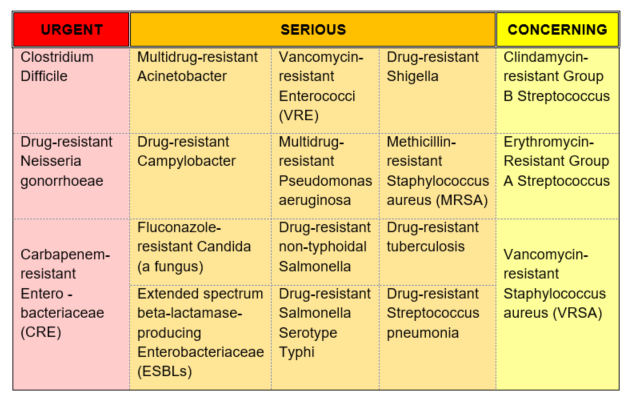
Another year is coming to an end, and with the cooler temperatures will come another cold and flu season. The timing could not be better to discuss the current overuse of antibiotics.
Over half of the antibiotics currently prescribed are unnecessary or prescribed inappropriately. Often, antibiotics are prescribed for colds, coughs and sore throats that need only symptomatic treatment and time to run their course. Physicians must change their antibiotic prescribing practices and encourage symptomatic treatments whenever possible.
Humankind needs to take action before it is too late and superbugs cause an unprecedented global pandemic.
Antibiotic resistance is fast becoming one of the most significant public health challenges of our time. Vancomycin-resistant enterococci, Streptococcus pneumonia and Mycobacterium tuberculosis, as well as a growing number of additional pathogens, are developing resistance to many of our most common antibiotics.
The threat of a global pandemic is real. The multidrug resistant organisms in the microscopic world are quickly mutating and adapting and now are circling back on us.
There has been no new approved drug class discovered since 1980. Even more frightening, no new class of antibiotics has been discovered to treat gram-negative bacteria since 1962.
The vast majority of our superbugs are … you guessed it … gram-negative bacteria.
The Centers for Disease Control and Prevention ranked the top 18 antibiotic-resistant bacterial infections according to seven factors:
1. Clinical impact
2. Economic impact
3. Incidence
4. 10-year projection of incidence
5. Transmissibility
6. Availability of effective antibiotics
7. Barriers to prevention
The threat level of each bacteria was then classified as urgent, serious or concerning.

Advocating for antibiotic stewardship
Thankfully, the CDC has been on the forefront of the crusade to educate people on making the changes necessary for decreasing the risk of a global pandemic. In 2009, the CDC developed the antibiotic stewardship program for use in healthcare institutions, including skilled nursing facilities.
The most recent data from the CDC regarding stewardship has demonstrated that programs dedicated to improving antibiotic use can enhance the treatment of infections as well as reduce adverse events associated with antibiotic use. The latest CDC estimates show nearly three million people in the U.S. are infected with antibiotic-resistant organisms, and such infections lead to approximately 35,000 deaths here each year.
Decreasing the use of antibiotics is a vital patient safety and public health issue and should be a national priority. Healthcare providers should be aware of these ways to improve their practices and decrease antibiotic use in their facilities:
· Identify an individual accountable for leading stewardship activities, often an infection preventionist
· Implement a stewardship program to decrease antibiotic use
· Provide training on the stewardship program to all staff, clinical providers, residents and families
· Develop specific written policies on antibiotic prescribing
· Use an evidence-based criterion for determining if an antibiotic is appropriate
· Provide clinical prescribers with feedback about their antibiotic prescribing practices
Practical strategies
How can SNFs protect residents? Some of the most effective strategies resulting in positive resident outcomes are also the most basic and intuitive:
· The practice and promotion of hand hygiene
· Consistent use of aseptic technique
· Use of rigorous cleaning and disinfection practices
· Use of standard precautions
· Use of safety devices
· Patient assessment and additional precautions
· Patient education
· Removal of unnecessary invasive devices
· Surveillance systems to rapidly detect and report cases
It is contingent upon SNF organizations and clinicians to share this information not only throughout SNF facilities, but also with their families, friends and neighbors — even the cashier at the grocery store. Quite frankly, tell anyone who will listen before it’s too late. If you are not contributing to the solution, your inaction will only exacerbate the problem.




